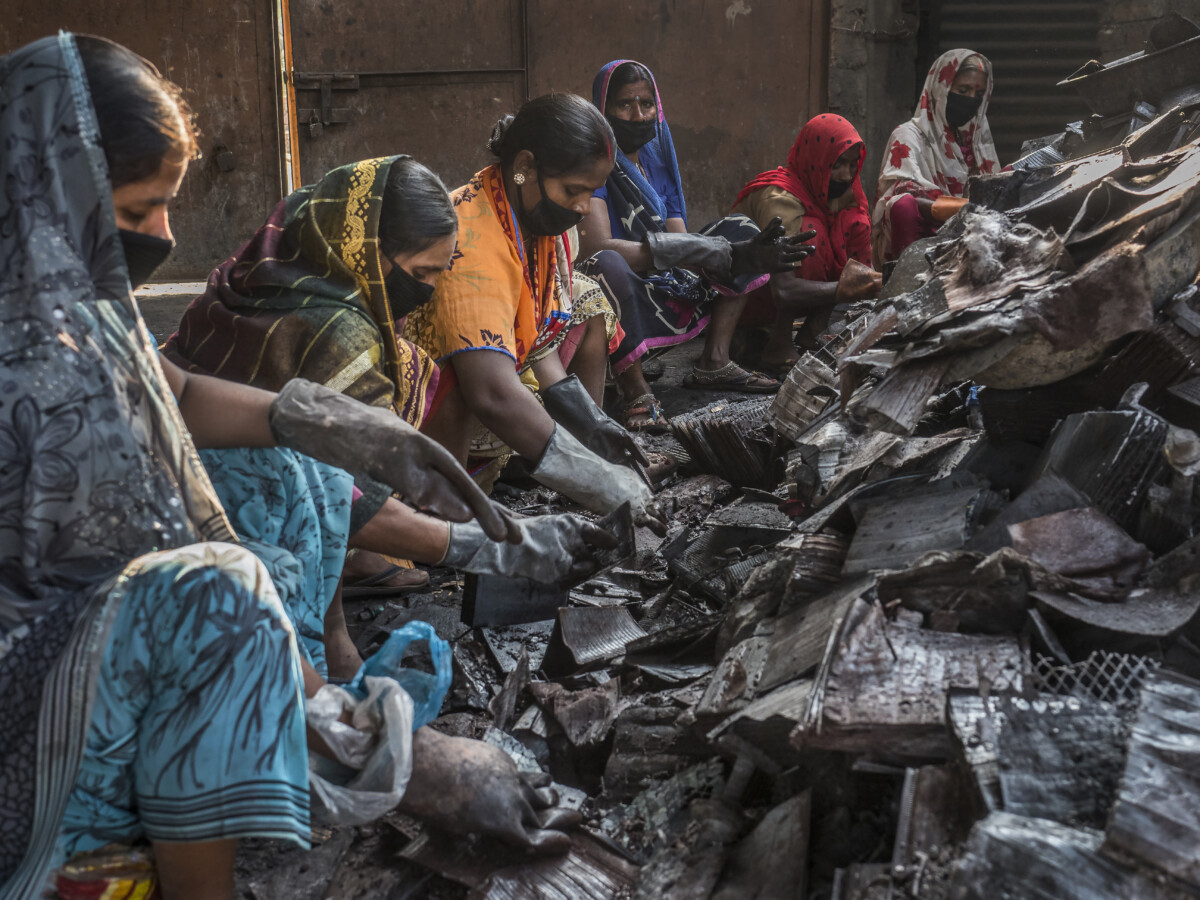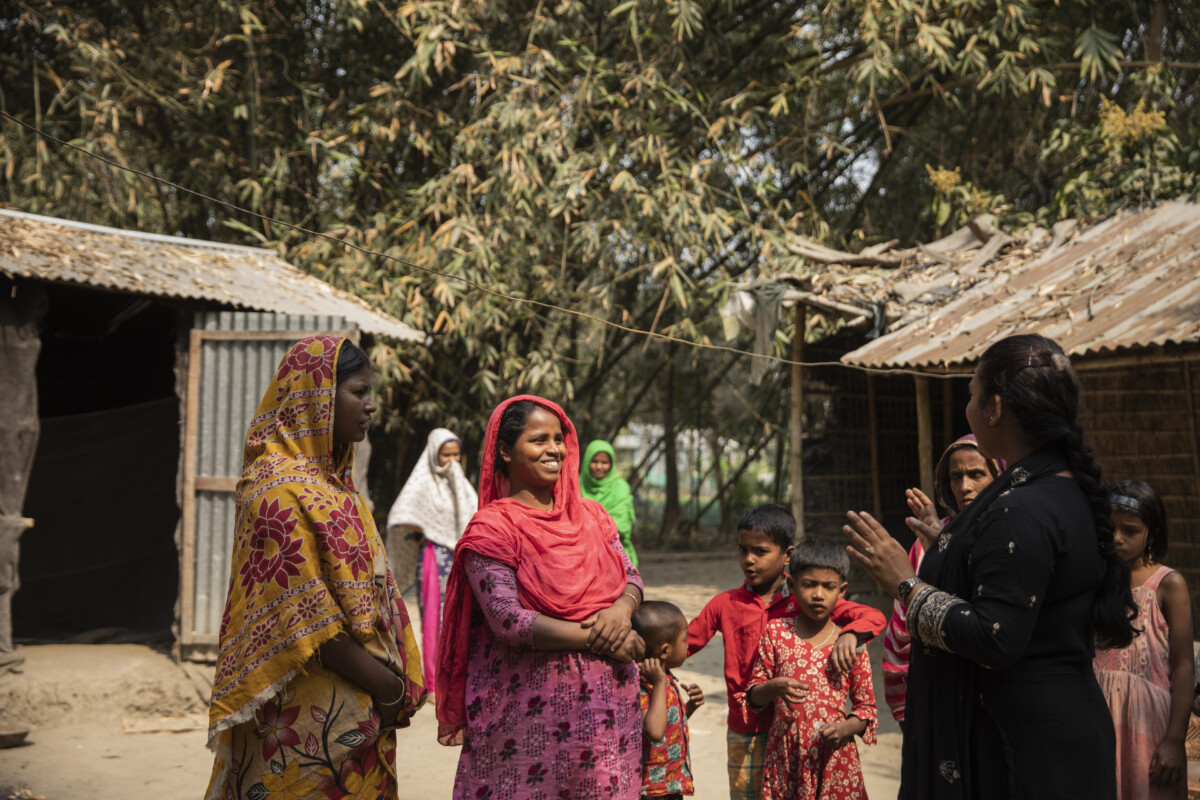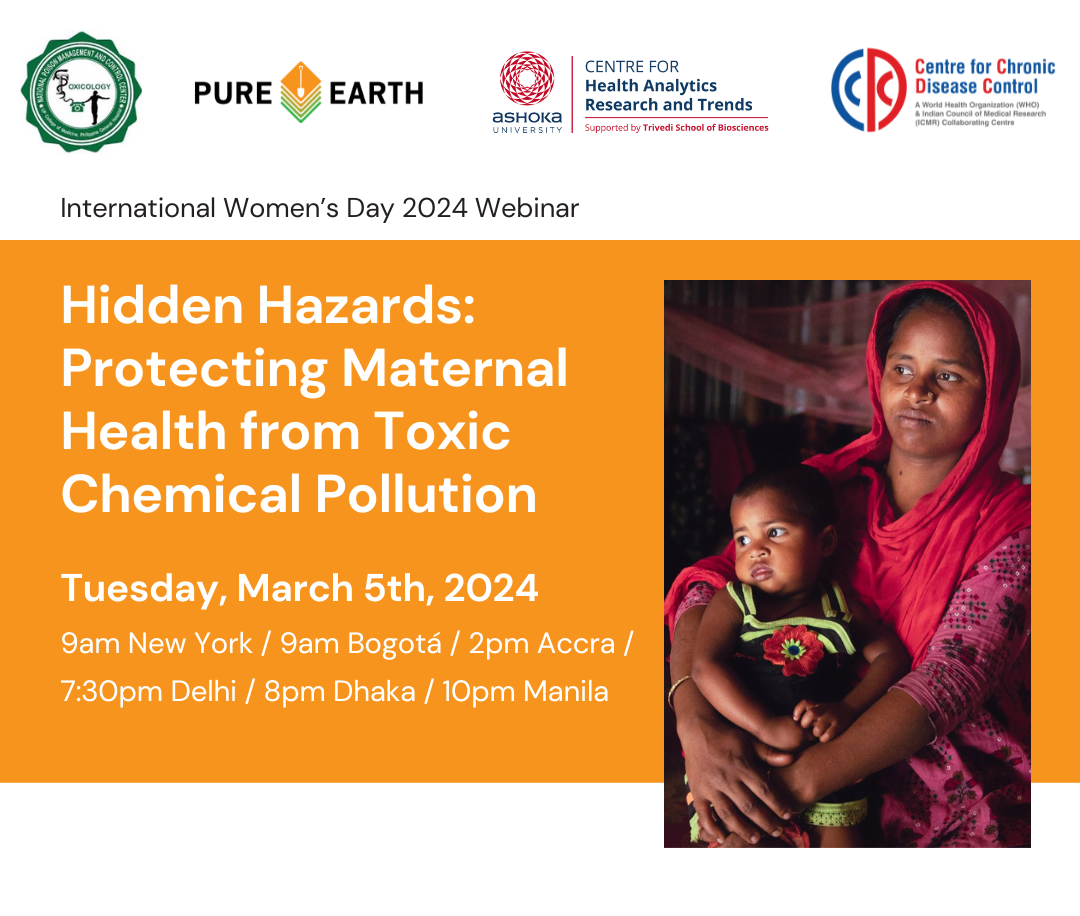Pollution is a Women’s Health Issue
Toxic pollution can disproportionately affect women’s health because of women’s different susceptibility and likelihood of exposure to various toxic substances at the workplace and at home. Exposures to dangerous chemicals have a multigenerational impact on women and families. Pregnant women can transmit toxins to their infants in utero and via breast milk. Toxic exposures have been linked to pre-term birth, infant mortality and developmental disabilities.
Artisanal small-scale and informal industrial work that causes pollution and/or use of dangerous chemicals on a daily basis, such as mercury use in artisanal gold mining, recycling of used lead acid batteries, tanneries using hexavalent chromium and e-waste burning, constitute areas of particular concern. Millions of women are dependent on these industries for their livelihoods and are exposed daily to toxic chemicals while they work. After work, workplace toxins come home on their clothes, skin and in their hair, contaminating entire households, as women prepare meals and care for children.

Toxic pollution, its health risks and subsequent environmental degradation are linked with downward poverty cycles, hindering economic development and a way out of poverty for women. Women in informal toxic industries are pushed to the fringe, forming a de facto high-risk population. Women are economically isolated, excluded from cooperatives or ownership positions or paid through back channels to work in their homes or backyards rather than in monitored, safe industrial environments. Women at the lowest economic rungs are relegated to sub-sectors of informal toxic industries, scavenging through lead slag or downstream mining waste by hand. As primary caregivers, women’s workloads are additionally burdened when toxic pollution exposures occur.
Women are Key to Solutions
Across the globe, women are cleaning up pollution, protecting families and the planet, and advocating on behalf of the most vulnerable. The profound impact that pollution has on maternal and child health demands action, and women are leading the effort, crafting solutions in government and policy making, private entrepreneurship, and community-level interventions.
Once educated on the dangers and sources of toxins, Pure Earth’s experts report that it’s the women in the community who often take charge—participating in our trainings on how to clean up pollutants in the home and make their work practices safe. They are also the most vocal advocates.
At Pure Earth, we aim for equal participation of women in all our projects. There’s a need for gender-disaggregated data to better identify exposure routes, however this data is scarce or absent. As part of our blood lead level testing protocol(s), Pure Earth always tests a subset of women and pregnant women. Effective gender mainstreaming in the chemicals and waste agenda at national and international levels should require countries, international, scientific and civil society organizations consistently collect sex-disaggregated data and use this data for informed decision-making and policy to eliminate gender disparity.
Learn more:
Highlighting Female Leaders Advocating for Environmental Health
Pure Earth’s Force of Nature Awards
On International Women’s Day and everyday, Pure Earth honors female leaders who are pioneering the fight against pollution, and brings awareness to pollution’s impacts on women and maternal health. Pure Earth’s Force of Nature awards recognize the strength and achievements of our honorees as well as countless women the world over working every day to solve pollution, protect their families and communities, and advocate on behalf of the most vulnerable.
Journalist Nadima Umar Uthman Wins UN Award for Coverage of Pure Earth Ghana’s Work to Prevent Childhood Lead Poisoning
In December 2023, Nadima Umar Uthman won the bronze medal at the 27th annual United Nations Correspondents Association (UNCA) awards, receiving the prestigious Ricardo Ortega Memorial Prize for her exceptional reporting on lead poisoning’s effects on pregnant women and children and Pure Earth’s interventions in Ghana.
Her extensive reporting on Pure Earth’s intervention in Ashaiman has not only brought attention to this critical issue in Ghana but also showcased journalistic excellence and integrity.
Watch Uthman’s award-winning reporting on lead pollution in Ghana.
Women’s Environmental Health Webinars and Events
Hidden Hazards: Protecting Maternal Health from Toxic Chemical Pollution
March 5, 2024
In celebration of International Women’s Day 2024, join us for an insightful panel discussion that delves into the intersection of heavy metal pollution and maternal health in low- and middle-income countries followed by an audience Q&A.
Learn more about the event here.


